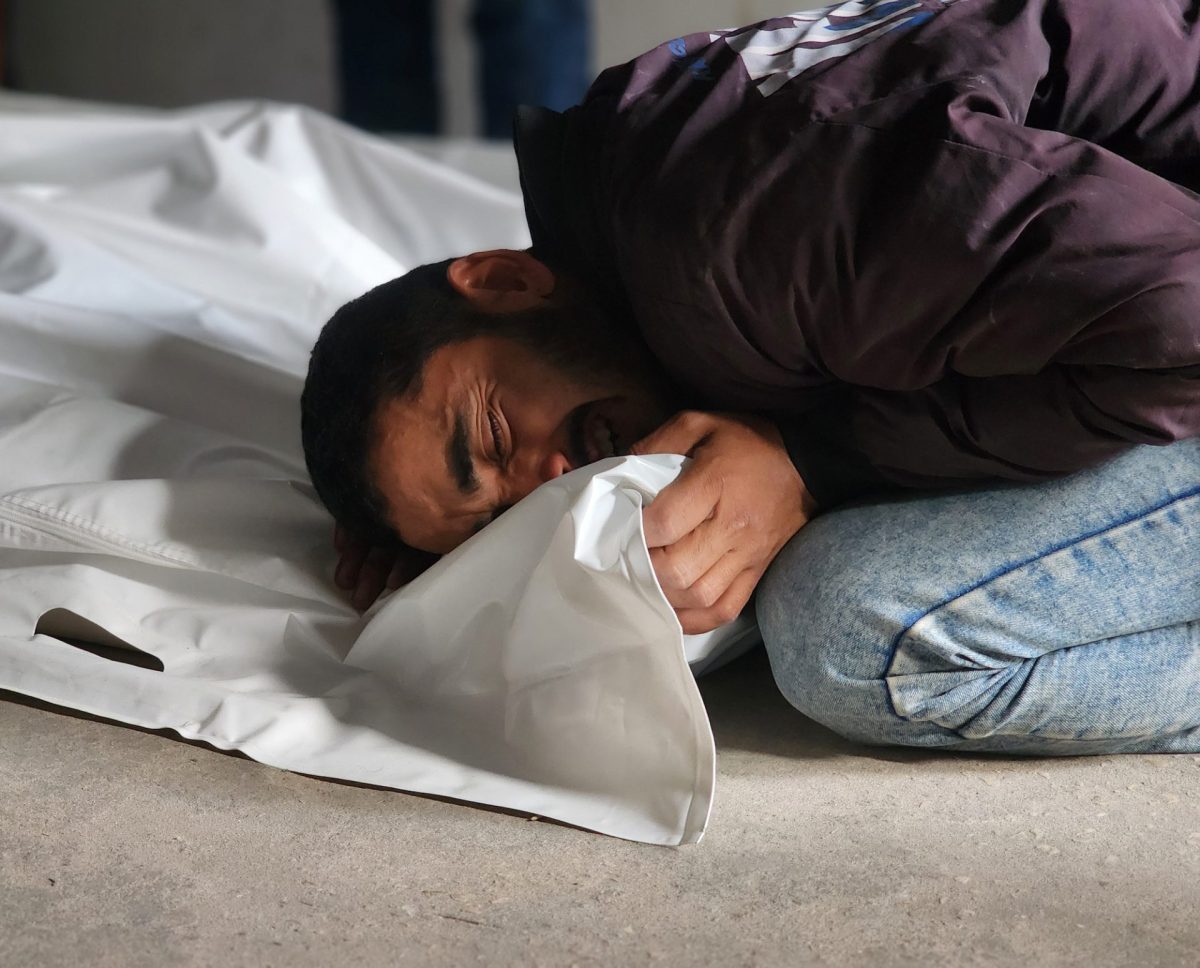At least 45 people were killed and dozens more wounded, most of them women and children, when Israel struck a camp housing displaced Palestinians in the Tel al-Sultan neighbourhood of western Rafah.
The air strikes, which resulted in some Palestinians being burned alive, came just two days after the International Court of Justice (ICJ) ordered Israel to “immediately halt its military offensive in Rafah”.
A source close to Hamas told MEE on Tuesday that the Palestinian organisation had informed mediators it was ending its participation in negotiations until Israel ends its offensive on Rafah, withdraws its troops, and that the Rafah crossing, a critical entry point for food, medicine and other supplies for Gaza’s 2.3 million people, is reopened under its previous administration.
“The Rafah crossing must return to its previous administration, and no one is allowed to return to the crossing, neither Majid Faraj nor his authority, and there will be no return to negotiations unless the crossing is reopened and under its previous administration.”
The source made the remarks hours after Israeli forces struck a group of tents in western Rafah, killing at least 21 people.
The source added that future negotiations would take place in the form of “one stage” and with “one set of procedures”.
“After eight months of futile negotiations, and with continued massacres… there will be no negotiations or a review of the signed paper or discussions around its details,” the source stated.
“They (Israel) must first stop the massacres, leave the Rafah crossing, and stop the aggression – then we can talk. Until that happens, there will be no discussions.”
The Israeli paper Haaretz was the first to report on Hamas’s decision to withdraw from the talks.
Earlier this month, Hamas publicly declared its acceptance of a ceasefire deal put forward by mediators Qatar and Egypt, but Israel said the proposal fell way short of its demands.
The proposal was made up of three six-week stages and would lead to a permanent ceasefire, the full withdrawal of Israeli forces from the Gaza Strip, and an end to the siege.
It also included the release of all Israeli captives held in Gaza in exchange for a number of Palestinian prisoners to be agreed upon at a later stage.
The source added that Egypt was scapegoated for a breakdown of talks even though the Americans had “agreed to the two amendments by Hamas, and then because they were unable to oblige Prime Minister Benjamin Netanyahu, they accused Egypt.”
“Hamas does not have to sit down for negotiations while the Israelis continue killing, as continuing gives cover for the massacres and even led to the killing of the Egyptian soldier.”
On Monday, Axios reported that Mossad director David Barnea had agreed to a new framework for the stalled negotiations, following talks in Paris on Friday with CIA director Bill Burns and Qatar’s Prime Minister Mohammed bin Abdulrahman al-Thani.
It reported that the new framework was handed to key mediators Qatar and Egypt, and included “a willingness to be flexible” regarding the number of living captives that would be released in the first phase of the deal, as well as a willingness to discuss Hamas’s demand for “sustainable calm” in the Gaza Strip.
On Tuesday, a senior Al Jazeera journalist reported that Israel had expressed its readiness to discuss Hamas’s demand for a “sustainable calm” in Gaza and that Hamas had received the proposal that Israel submitted to the mediators.
However, Hamas has repeatedly insisted it is not willing to accept a temporary ceasefire, and that an end to the fighting has to be permanent.
Later on Tuesday, Egypt’s state-affiliated Al-Qahera News TV channel reported, citing a senior official, that an Egyptian security delegation was trying to reactivate the talks.
The official was quoted as saying Egypt had told all concerned parties that efforts to revive the talks had been undermined by Israel’s ongoing ground operation on Rafah in southern Gaza, which had brought “dire consequences”.
Netanyahu, under pressure from far-right members of his ruling coalition, has repeatedly rejected Hamas’s demands for a ceasefire deal.
On Tuesday, despite admitting the killing of 45 Palestinians had been a “tragic mishap”, he remained undeterred over the war effort in Rafah and showed little sign of changing course.
“I don’t intend to end the war before every goal has been achieved,” he added.
Since the events of 7 October, when a Hamas-led attack on southern Israel killed 1,200 people and resulted in 250 people being taken back to Gaza as captives, the enclave has been under total siege and deprived of basic necessities, while facing a devastating bombing campaign by Israel.
More than 36,000 Palestinians have been killed and nearly the entire population has been displaced. Nearly 80,000 people have also been wounded, according to health officials.
The figures exclude tens of thousands of dead who are believed to be buried in the bombed-out ruins of homes, shops, shelters, and other buildings.
